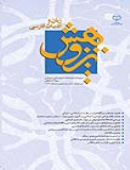نمونههایی از لطیفههای نبوی در متون ادبی
محورهای موضوعی : پژوهشهای ادبیات کلاسیک ایران
1 -
کلید واژه: متون ادب فارسي لطايف كلامي حضرت محمد(ص),
چکیده مقاله :
اين پژوهش درصدد پاسخ به اين پرسش است كه پيامبر اكرم(ص) با وجود «ما خُِطبَ به» بودن قرآن مجيد و با وصف «ما ينطق عن الهوي» و «إنك لعلي خلق عظيم» آيا سخنان لطیفه آميز ميگفتند؟ اگر اين گونه است، لطیفههای آن حضرت شامل چه نوع لطیفههایی است؟ بيشتر كدام عناصر را به كار بردهاند؟ آيا براي لطیفه محدوديتهايي هم قائل بودهاند؟ اين پژوهش نشان ميدهد پيامبر اكرم(ص) گهگاه مزاح ميكردند و لطیفه ميگفتند. اما هرگز از محدوده اخلاق خارج نميشدند. سخنان لطیفهآميز آن حضرت دو دستهاند: دسته اول لطیفههای حكيمانه است؛ دسته دوم لطیفههای عام که پيچيدگي كمتري دارد. لطیفههای عام، به دو نوع موقعيتي و عبارتي تقسيم ميشوند. لطیفههای عبارتي شامل بلاغتهاي زباني مانند ايهام، ايجاز، ایجاد شگفتی زباني و رفتاري، تضاد و تناقض (در مفهوم صنعت ادبي) است. همچنين بخشي از لطیفهها، لطیفههای تعليمي است. لطیفههای نبوي بيشتر از نوع زباني و عبارتي است و نشانهها و نمادهاي طنز كه در آنها تحقير و توهين به ديگران باشد، در آنها ديده نميشود. اما از آنجا که اصطلاح طنز گاهی در حوزههای تحقیر و توهین افراد یا مسائل اجتماعی جولان میدهد و ساحت حضرت ختمی مرتبت از آن مبراست؛ از سوی دیگر، تاكنون کسی در نامگذاری اينگونه سخنان آن بزرگوار اقدام نکرده است. نگارنده برای حفظ ادب شرعی همه انواع ملاحتهای زبانی و لطایف نبوی را با اصطلاح «لطیفه» نامگذاري كرده است.
This research intends to respond to this question; due to the fact that Quran says; "it was spoken to him", "he does not speak of lust and likes", and " you have an excellent morales", would Prophet Mohammad speak of epigrams and funny words? If so, then what category would Prophet's epigrams would fit in? What elements were mostly used in them? Has the Prophet considered any limitations for such epigrams? This research shows that at that time, Prophet Mohammad did mean to speak funny and witty words. However, he never violated moralities. The prophets' witty words are categorized in two groups; first are the wise witty words with a advice; and the second groups are the general witty words that are less complicated. The general witty words are two kinds; the witty words of "situation" and "phrasal" ones. The phrasal ones include linguistic rhetorical ones such as puns and ambiguities, brevity, creating wonders in the language and behavior, paradox and antithesis. Also part of these witty words is instructional. The prophetical witty words are mostly linguistic and phrasal ones, symbols, and emblems, intending to humiliate and insult others, and rarely seen in them. Nevertheless, since at times, the term "witty words" is used in the domain of offence, insult and humiliation or even the social matters, and the prophet's lofty character is superior to any of this, no one has ever categorized the dear Prophet's words at all. The writer of this research has called all the Prophet's witty linguistic points, comments and words "witty" to be polite within the religious borders without any exception.

